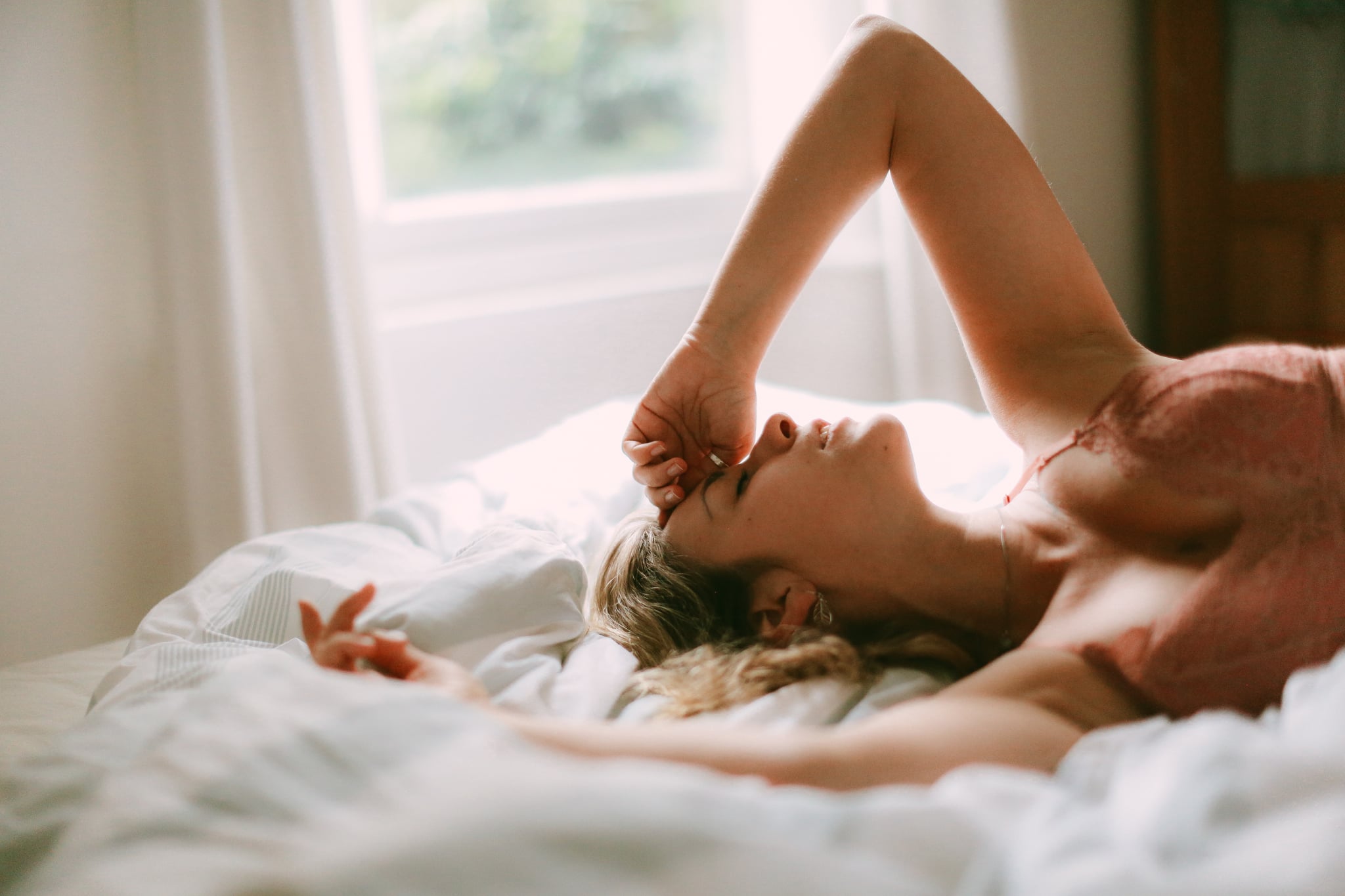

Night sweats are surprisingly common in young women, typically caused by hormonal shifts and imbalances, but there are steps you can take to prevent them.
One thing to avoid before bed: alcohol. "It can impact our ability to regulate our body temperature and cause night sweats," Natasha Bhuyan, MD, told POPSUGAR. She also noted that, although alcohol can make you drowsy, it negatively impacts the quality of your sleep - so cutting out alcohol before bedtime is a win-win in terms of getting a restful night of sleep and preventing night sweats. Because spicy foods are also common culprits, Dr. Bhuyan suggests avoiding those in the hours before bedtime, too. "Spicy foods can also trigger acid reflux overnight, which can be particularly bothersome when you lay down," she added.
If you're a smoker, consider night sweats just one more reason to quit. "Smoking can cause night sweats as nicotine can increase your heart rate and body temperature," Dr. Bhuyan said. Ask your doctor to connect you with the right resources for breaking the habit.
Stress is another common cause of night sweats, she explained - but this isn't something that's often discussed. "Some people under stress will get panic attacks, during which they experience heart racing, flushing, and sweating," Dr. Bhuyan told POPSUGAR. "People can also wake up with panic attacks and sweating overnight." If you're under a lot of stress, she suggests meeting with your primary care physician to explore the possibility that you have anxiety or depression, in addition to trying activities like mindfulness, exercise, journaling, or meditation to reduce stress.
Of course, making changes to your environment can help prevent night sweats, too. Abdulghani Sankari, MD, a pulmonologist who specializes in critical care and sleep medicine at Detroit Medical Center's Harper University Hospital, recommends carefully monitoring your bedroom temperature. "Set the thermostat two to three degrees below the usual temperature in your living area," Dr. Sankari told POPSUGAR. "Keep a diary of temperature reading before and after night sweats episodes." He added that you should also wear loose fitting pajamas and avoid using heavy blankets.
If you diligently follow these tips and there's little or no improvement - or if the patterns of your night sweats shift or they become so severe that you have to change your sheets during the night - it's time to see a doctor, as night sweats could be the result of an underlying condition. In that case, treating the root cause of the problem can help you sleep more soundly.


0 comments :
Post a Comment